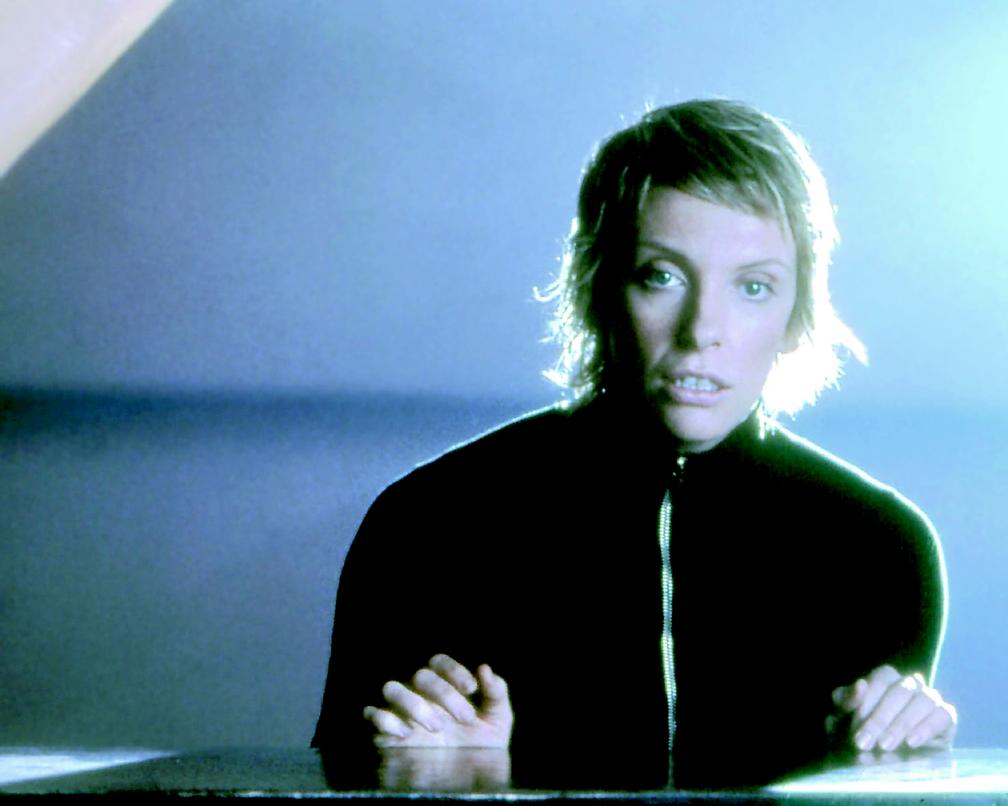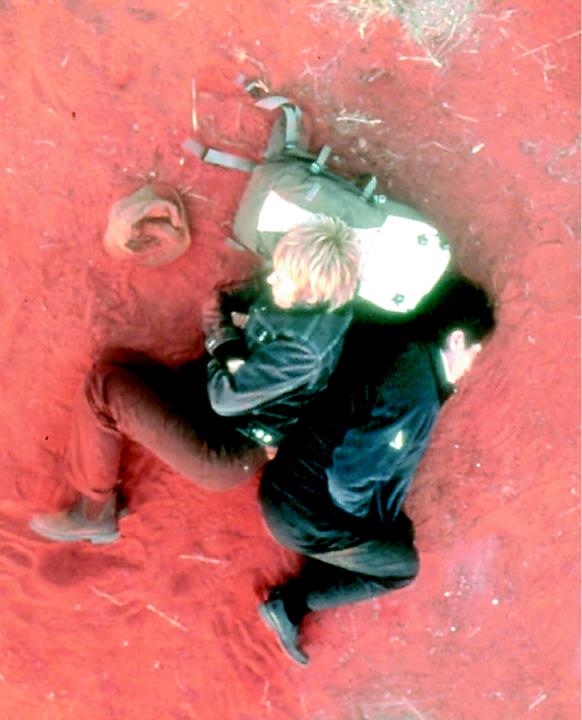Japanese Story, written and directed by Sue Brooks, is a tale of hate-turned-love, a theme that has forever had an important place in all artistic mediums. Powerful cultural differences and biases put Edwards and Hiromitsu at odds from the first moment they meet, and though they would rather work with just about anyone but each other, they have no choice but to swallow their pride for the sake of professionalism.
Hiromitsu has come to Australia to possibly invest in a mine and Edwards is forced to show him around the surrounding Pilbara Desert. Their first outing finds them in the middle of a life-threatening situation, miles from civilization, car stuck up to its axles in sand. The thought of dying together in the desert, or even having to spend one more minute together, leads to unintentional teamwork, which eventually gets them out of the life or death situation. As in many movies before Japanese Story—think Six Days, Seven Nights—working together and forgetting their differences helps to break the increasing tension. Before the day is over, the two stubborn strangers realize they are not really so different after all and fall into an intimate relationship.
Though it seems like an innocent love affair, the relationship is actually an act of infidelity on Hiromitsu's part. But the fact that he has a family in Japan does not effect the budding affair, other than to serve as another reminder for Edwards that this mysterious man is in fact a real person with real feelings. … He's not just a job or an inconvenience. The couple continues its tour of Western Australia, and Hiro's lack of knowledge about how to survive in a land he knows nothing about leads to a shocking and life-altering twist, the movie's most intense and crucial scene.
While the story is not completely original, while some of the dialogue and scene jumps are mildly confusing and at times the plot moves a little too quickly to be completely believable, there are two aspects of Japanese Story that make it a rewarding film. The first being that the supporting cast is just as strong, if not stronger, than the leading characters. A most convincing and emotionally leggy performance is given by Yukiko, Hiro's wife (played by Yumiko Tanaka). Edwards' mum (Lynette Curran) is funny, sincere and witty, though her role is over after one scene.
The second and most interesting concept is the metaphor between landscape and human emotion. “We walk across this earth without stopping to think what's underneath, and the same applies to the people in this film,” notes Brooks. The comparison works on a few different levels—Hiro is looking at a mining company of all places, where all the most valuable properties are safely hidden below ground, just as his passion and willingness to open himself to new feelings are buried far beneath his surface. Edwards works with these properties daily, yet she also is blind to life's most basic needs, such as love and companionship. Though the unexpected pair doesn't intentionally try to learn anything about each other, they do. It is only then that they are able to reap the benefits—realizing that looks and first impressions can be deceiving in business and in life.
Japanese Story takes an otherwise predictable tale and uses it as a jumping-off point into a gripping and passionate place. Stunning Australian landscapes and an unpredictable ending make this story one of physical and emotional beauty.




